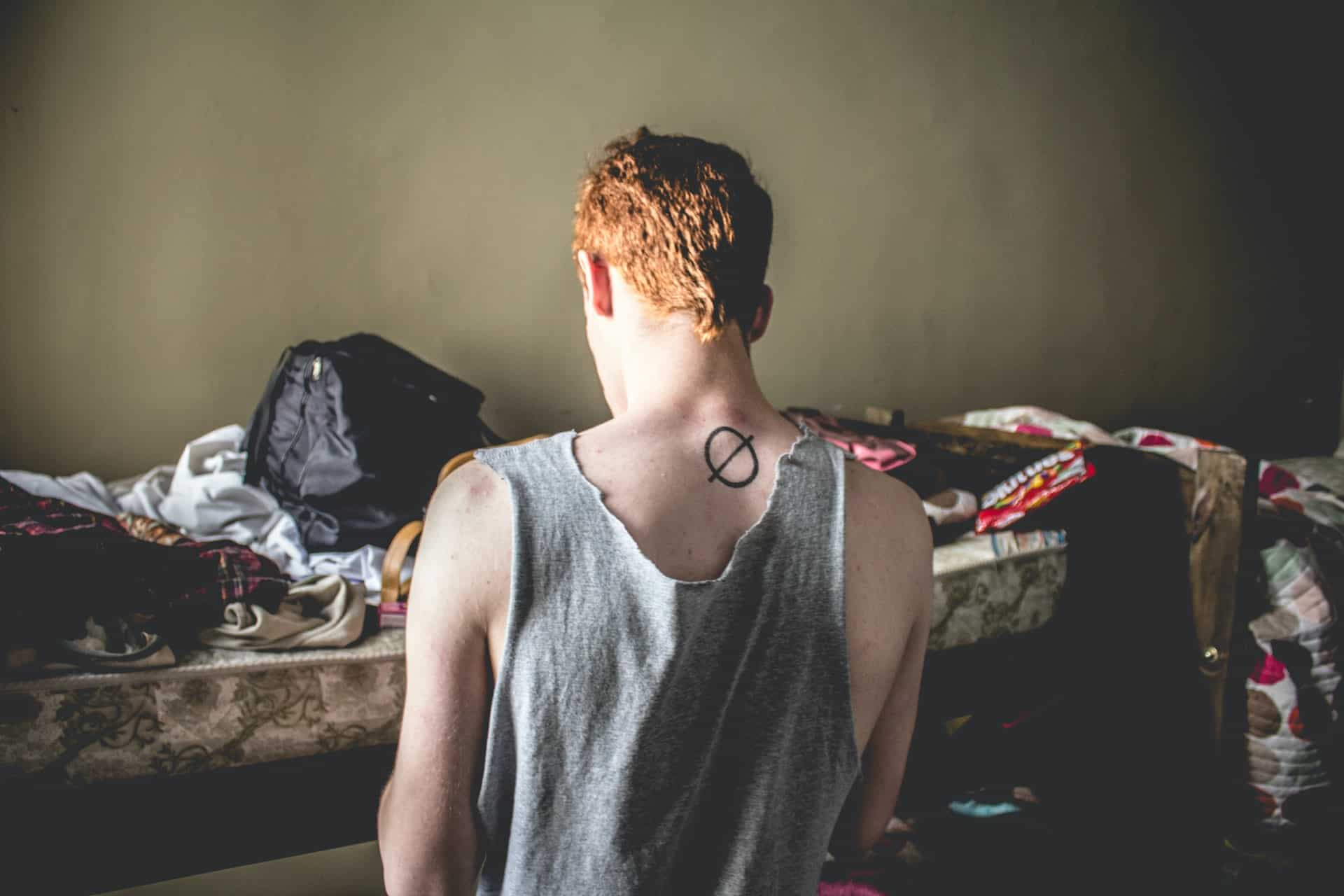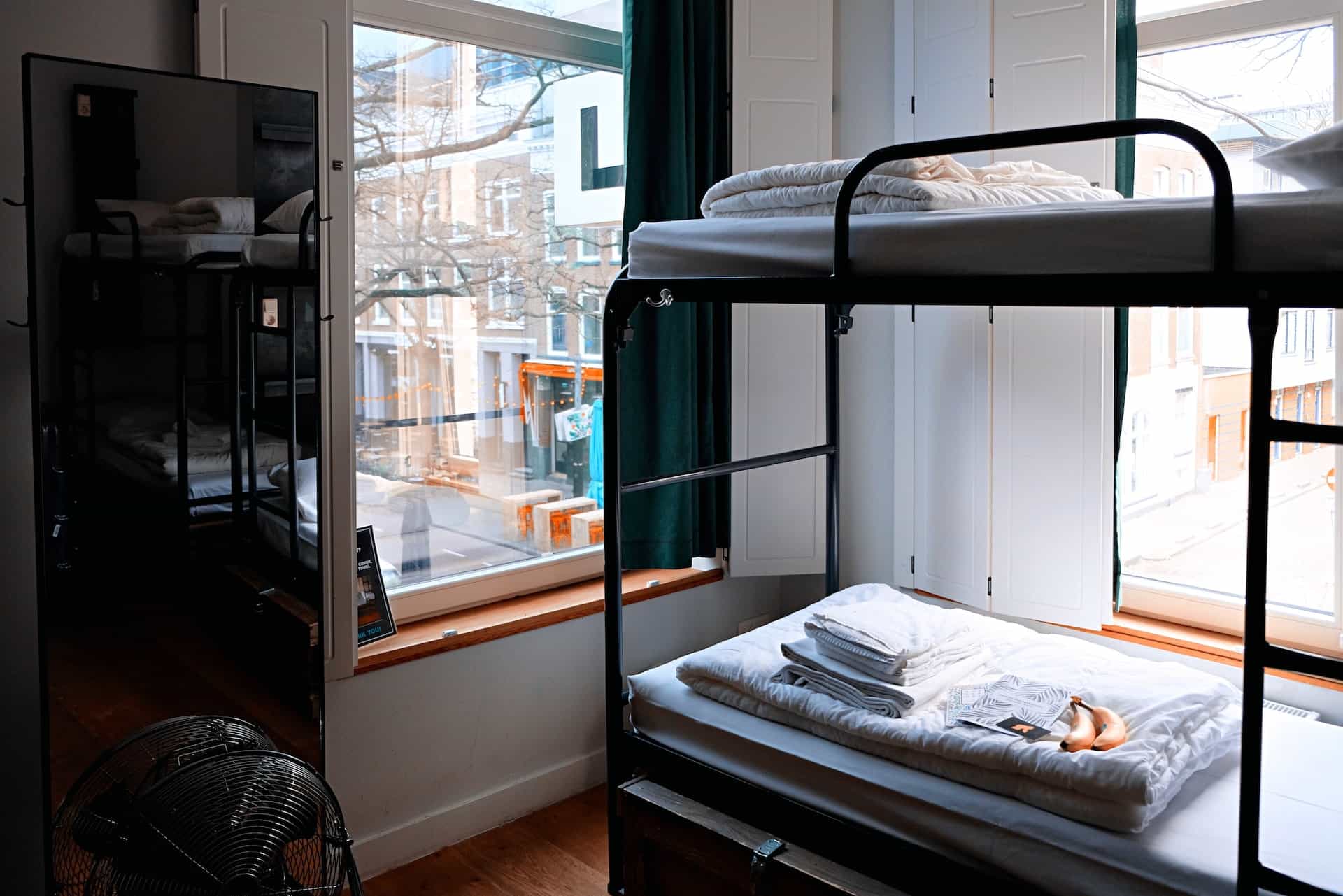After my confession of getting bed bugs myself, I thought I would at least post some tips on how to prevent bed bugs when traveling from the research I did after getting them in Asia.
In the last ten years, bed bug infestations have quadrupled. It's not just hostels either, as 4-5 star hotels are getting hit with the same problem too.

Prevent bed bugs before they attack: Click here to buy pre-trip supplies!
Bed bugs do not discriminate, and the traveler is the most susceptible to getting a case of them. Since most countries in the world have outlawed the chemical DDT, bed bugs are coming back in a whole new way!
There isn't a full-proof way of detecting bed bugs in a room. I know that's not what you wanted to hear.
They can be hiding anywhere, strike anytime, and it almost takes a case of them infecting someone before you can diagnose what it was. Bed bugs can live as long as 18 months without having to feed.
Odds are, you might have stayed in a bug-infested room already, but nothing happened because they weren't out on the prowl the night you slept. That being said, you can still check for signs.
A good traveler should always ask to see the room first, but before you go straight to the bathroom once you hit the light, go to the bed first.
The bugs are nocturnal and only move around when it's dark, so the best time for seeing signs (or one) of them is right after the light is turned on.
What To Look for When Inspecting a Room
Check under the bed mattress first. Look for stains of black or brown fecal matter. You will typically find this around their nesting area.
Be sure also to check out the mattress tag; they love to hide there for some reason.
Check the sheets and pillowcases by pulling them back. Look for signs of minor blood stains that they leave after feeding.
Check the back of the headboard for nesting areas as well. You may also see translucent light brown skins in this area.
Check the walls for cracks where you might see signs of fecal matter. Most bed bugs nest about 10-15 feet from the bed.
If the room has furniture (couch or chairs), lift the cushions and inspect for the same signs as above. Bed bugs can just as easily nest there.

How to Avoid Bed Bugs
Inspection on your part is the best thing. Hotels and hostels aren't going to tell you on a scale of 1-10 if there are bed bugs in the room they're trying to sell you.
Never leave your bag or suitcase on the floor or bed. Always store bags in an elevated area, and if the room has a nightstand or luggage rack, use it. Even the top of the TV is better than nothing.
If you suspect an infestation, immediately grab all your stuff and go to the front counter. Inform the management of what you saw and request a room change or refund.
I would go with the refund; if one room is infested, I assume the whole place is. The place your staying isn't worth the risk of getting torn up. If you don't believe me, see the other article I wrote here.
Note: if you paid $5 for your room in a developing country, just leave. Getting angry with the owner and making demands will do you little good.

What To Do If You Get Bitten
Don't mistake mosquito bites for bed bugs. Bed bug bites usually come in rows of three and will not have a blood dot in the middle of the bite like a mosquito bite would leave. When in doubt, ask!
HEAT, HEAT, and more HEAT! Wash your clothes and anything you can afford to get wet in the hottest water you can find.
I boiled water and dipped all my clothes into a pot three times. Bed bugs can take temperatures up to 100 F (38 C), so you need your water to be at least 120 F (49 C).
It's the only 100%-certain way of ensuring you rid your clothes of them and do not take any home with you.
Don't bother with freezing or chemicals. Freezing them only puts the bugs into hibernation, and chemicals are sketchy at best.
See a doctor and get some meds to help with the healing. It will speed up the recovery time of the bites, and it's better than having to walk around, say, Thailand, in the middle of the summer with a long sleeve shirt.
Afterward, you might have difficulty convincing yourself that something isn't eating you every time you go to sleep.
It took me three months to get a good night's sleep after I got bitten, and it was all psychological.
Learn from my experience and use these tips to prevent bed bugs while traveling. Good luck out there!
T-roy is taking an extended holiday from being responsible. Quitting the 6-figure salary job that was killing him with 12hr workdays, he decided that this wasn't the life. He moved to Thailand and spent 3 months living a humble backpacker's life and loved the experience so much he kept going. He now resides in Medellin, Colombia doing photography work while running his own travel blog: www.foggodyssey.com
Planning a trip? Go Backpacking recommends:
- G Adventures for small group tours.
- Hostelworld for booking hostels.

dags
Friday 4th of December 2015
i'm just going to pack a blow torch and set the whole place on fire
Bjorn
Tuesday 11th of August 2015
Hi,
As an Norwegian who just moved to El Salador I must say it takes some time to get used to all the bugs. There is a lot more here.
Really interesting article. Keep up the good work.
David Overton
Saturday 5th of May 2012
Bed bugs are nothing new in Spain, so don't believe the stories that they came into Spain recently with French hitch-hikers! I travelled in Spain as a hitch hiker in the Franco era, and the first important word in Spanish I learned was "chinchas" (bed bugs). After a horrible night at a pension in Barcelona, where my girlfriend and I were eaten alive by bugs, we vowed "never again" so, when we arrived at a pension the first thing we did was to brazenly ask: "No chinchas?" . If we found any we immediately left, refusing to pay. Now, if it's very late and you have nowhere elso to go, the answer is this: sleep with the light on. The bugs are noctural and won't come out to bother you! If light bothers you, then take eye shades witgh you...
Jhanella
Wednesday 10th of November 2010
Good thing your experience thought you something huh? Everybody hates insects and they strikes usually when we are unconscious and that made them a silent killer (lol). Anyways, the result of your research is so interesting and very effective. Thank you for sharing it to us. I hope that I will not experience what you have experience I will totally freak out if that happens.
adriana
Sunday 11th of April 2010
buddy, DDT is not something you want to go around using like Lysol, its an endocrine (hormone) disrupter, carcinogen and a whole host of other bad things. It was banned for a reason.